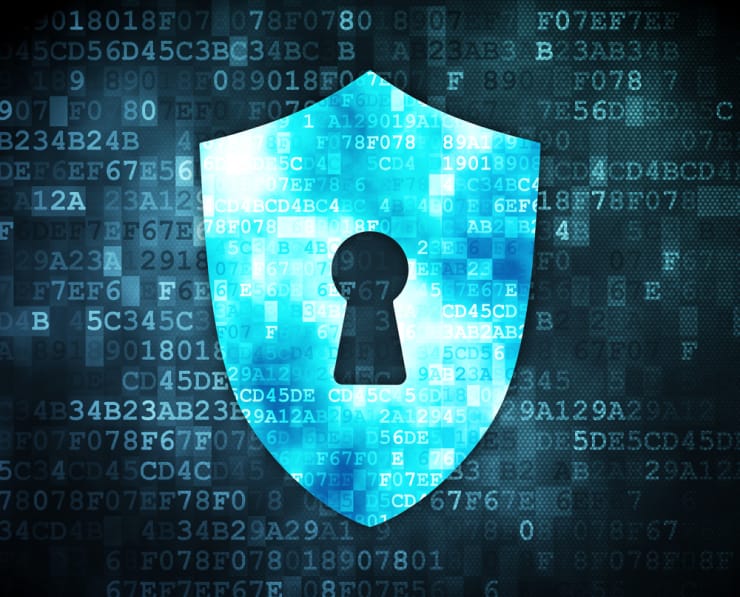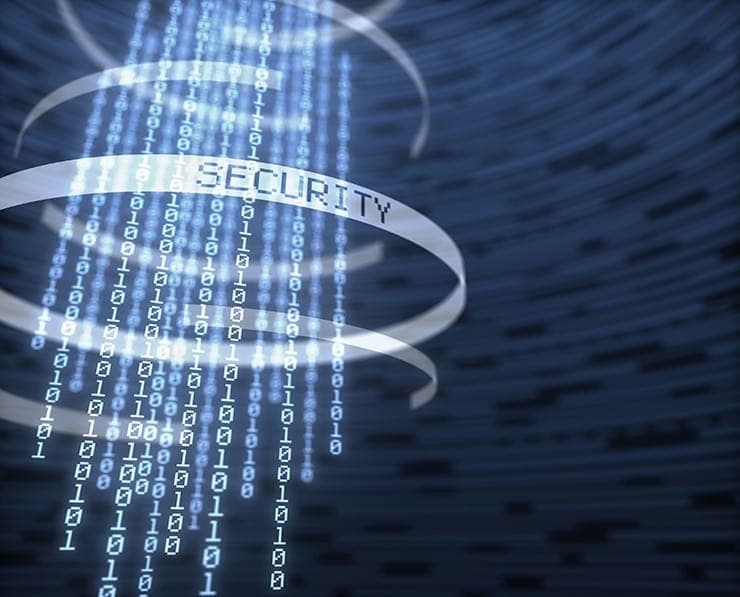Student Feedback
SK0-005: CompTIA Server+ Certification Exam Certification Video Training Course Outline
SERVER HARDWARE INSTALLATION AND...
Server Hardware Racking and Cabl...
Internal Server Hardware Components
Evaluate and Deploy Server Storage
SERVER ADMINISTRATION - Server O...
Configure Servers to Use Network...
Configure and Maintain Server Fu...
Server Licensing
Purpose and Operation of Virtual...
Cloud Computing
Scripting Basics for Server Admi...
SECURITY AND DISASTER RECOVERY -...
Physical Server Security Measures
Identity and Access Management
Backups, Restores and Disaster R...
Securing the Data Center Network
Hardening a Server After Deployment
Techniques for Decommissioning a...
TROUBLESHOOTING - Troubleshootin...
Troubleshooting Common OS Functions
Troubleshooting Server Hardware ...
Troubleshooting Server Security ...
Troubleshooting Server Networkin...
SERVER HARDWARE INSTALLATION AND MANAGEMENT - Point of Servers
SK0-005: CompTIA Server+ Certification Exam Certification Video Training Course Info
CompTIA Server+ (SK0-005) Online Training – Server Operations & Maintenance Masterclass
Comprehensive Training in Server Administration, Virtualization, Storage, and Diagnostics for CompTIA Server+ SK0-005 Exam Success
What you will learn from this course
• Install and configure enterprise-level server hardware and operating systems to support workloads in on-premises, cloud, and hybrid data centers
• Deploy and manage virtualization technologies to improve scalability, optimize resources, and enable flexible server environments
• Implement advanced storage solutions such as RAID, SAN, NAS, and cloud storage for efficient enterprise data management
• Design and configure high availability and disaster recovery strategies to minimize downtime and maintain business continuity
• Monitor and analyze server performance using diagnostic tools, event logs, and performance baselines to identify and resolve issues
• Apply server security practices, including access control, patch management, encryption, and vulnerability mitigation
• Configure and manage server networking, including IP addressing, DNS, DHCP, routing, and connectivity troubleshooting
• Perform capacity planning and resource optimization to align server infrastructure with organizational performance goals
• Support modern data center operations and hybrid cloud environments with knowledge of virtualization, automation, and storage technologies
• Prepare for the CompTIA Server+ SK0-005 exam with complete coverage of all domains and practical real-world scenarios
Learning Objectives
The primary objective of this course is to provide the technical skills and knowledge required to install, configure, manage, and troubleshoot modern server environments. Learners will gain a deep understanding of physical and virtual server hardware, operating systems, network services, and security best practices. By focusing on practical skills, the course ensures that participants are able to manage servers in real-world enterprise and hybrid environments with confidence. The training is aligned with the CompTIA Server+ SK0-005 certification exam objectives, giving students the expertise to successfully pass the exam while also preparing them for professional roles such as server administrator, data center technician, and systems engineer. This course emphasizes a vendor-neutral approach so that the knowledge gained applies to all major server platforms and operating systems, enabling flexibility and career growth. Students will develop the ability to implement storage solutions, configure disaster recovery strategies, optimize server performance, and secure critical business data. The learning process includes step-by-step guidance and practical insights that mirror real IT operations. By completing the course, learners will be equipped to handle tasks ranging from installing new hardware and operating systems to managing complex hybrid infrastructures that integrate on-premises and cloud technologies.
Target Audience
This course is designed for a wide range of learners who are interested in building or validating their server administration skills. IT professionals seeking to earn the CompTIA Server+ SK0-005 certification will find the training invaluable in mastering the knowledge domains covered by the exam. System administrators who want to deepen their expertise in enterprise-level server management will benefit from the detailed coverage of installation, configuration, and troubleshooting. Network administrators and IT support specialists looking to transition into server roles will gain the foundation needed to expand their career opportunities. Aspiring IT professionals and students who are preparing for entry-to-mid-level positions in system administration will find the course an excellent way to build practical skills before entering the workforce. Career changers who are moving into information technology from other fields will also find the course accessible, as it starts with fundamental concepts and builds toward advanced server administration techniques. Organizations and team leaders can use this course as a structured training resource to develop staff competencies in server installation, configuration, security, and performance optimization, ensuring that their IT teams are prepared to manage modern data centers and hybrid cloud infrastructures.
Requirements
This course is structured to accommodate learners with a range of backgrounds, including those with no previous experience in server administration. A basic familiarity with computer systems and general IT concepts can be helpful, but is not mandatory. Learners should have access to a computer with an internet connection to participate in online lessons, demonstrations, and practice exercises. The course materials and demonstrations are designed to provide all the guidance necessary to build skills from the ground up, so students can start learning without needing prior technical knowledge. Having a willingness to learn and a commitment to practice the concepts presented in the lessons will ensure the best outcome for learners who want to advance their IT careers.
Prerequisites
There are no strict prerequisites for enrolling in this course, making it ideal for beginners as well as experienced IT professionals seeking to enhance their knowledge. While prior exposure to basic computer hardware, operating systems, or networking concepts can be beneficial, it is not required. All essential topics are explained in a clear and structured manner, starting from foundational server concepts and progressing to advanced configuration and troubleshooting techniques. Learners who have previously completed entry-level IT certifications or have hands-on experience with personal computers may find certain sections easier to grasp, but the course is designed to provide a complete learning path for anyone motivated to develop server administration skills. The training is self-contained and provides all the technical explanations, demonstrations, and guidance necessary to succeed in both the course and the CompTIA Server+ SK0-005 certification exam.
Description
The CompTIA Server+ SK0-005 certification is a globally recognized credential that validates the skills required to build, manage, and troubleshoot modern server environments. It focuses on vendor-neutral technologies, allowing professionals to work with a variety of server hardware and operating systems without being tied to a specific platform. The certification covers essential topics such as server installation, configuration, storage management, networking, virtualization, and security. This makes it an ideal qualification for individuals seeking careers in server administration, data center operations, or systems engineering. Employers value this certification because it demonstrates that candidates have the practical knowledge to handle real-world IT challenges, from configuring enterprise servers to implementing disaster recovery strategies. The SK0-005 exam tests skills across a broad range of domains, including hardware deployment, operating system configuration, network services, and server maintenance. By preparing for and earning this certification, learners position themselves for roles that require the ability to manage complex server infrastructures in both physical and virtual environments. The course provides a detailed and structured approach to mastering these skills, ensuring that learners not only pass the exam but also develop the practical expertise needed to excel in professional IT roles. Through comprehensive lessons and real-world examples, participants will gain the confidence to install, configure, secure, and maintain servers in any type of enterprise setting, including hybrid and cloud-based environments.
Course Modules / Sections
The CompTIA Server+ SK0-005 training is organized into structured modules that gradually build knowledge from foundational server concepts to advanced configuration and troubleshooting. Each module focuses on a specific aspect of server administration, ensuring a comprehensive understanding of both theoretical concepts and practical applications. The first module introduces core server hardware components, explaining the roles of processors, memory, storage devices, power supplies, and network interfaces. Learners explore how different hardware types affect server performance, scalability, and reliability. The second module focuses on operating system installation and configuration, covering server-specific versions of Windows, Linux distributions, and other enterprise operating systems. Students learn how to plan deployments, configure installation settings, and apply updates to maintain stability and security. A third module introduces virtualization technologies, detailing hypervisors, virtual machine management, and the use of virtual networks and storage to optimize hardware utilization. Storage solutions are covered in a dedicated module that examines RAID configurations, storage area networks, network-attached storage, and integration with cloud-based storage platforms. Another module explores server networking concepts, including IP addressing, DNS, DHCP, and routing, while demonstrating how to configure servers for reliable connectivity within enterprise environments. Security is addressed in a separate module that focuses on access controls, encryption, patch management, and vulnerability assessments to protect servers against cyber threats. High availability and disaster recovery are covered in a module dedicated to planning redundancy, implementing clustering, and configuring backup systems to ensure business continuity. Performance monitoring and troubleshooting form another key module, where learners practice using diagnostic tools, event logs, and baseline metrics to identify and resolve server issues. The final module focuses on exam preparation, reviewing key concepts, and providing guidance on how to approach the CompTIA Server+ SK0-005 certification test with confidence. Together, these modules create a logical progression that takes learners from basic server knowledge to the advanced skills required in modern data centers and hybrid cloud environments.
Key Topics Covered
The course covers a wide range of topics essential for anyone seeking to become a proficient server administrator. Hardware installation and configuration is one of the central topics, giving students an understanding of physical server components and their interactions. This includes selecting compatible hardware, assembling systems, and configuring BIOS or UEFI settings to optimize performance. Operating system deployment is another critical area where learners gain experience installing and configuring enterprise-class operating systems such as Windows Server and Linux. Virtualization is explored in depth, focusing on hypervisors, virtual machine creation, and resource allocation strategies to maximize hardware efficiency. Storage solutions are discussed with detailed attention to RAID levels, SAN implementations, NAS configurations, and cloud integration, ensuring learners can design and manage flexible storage environments. Server networking is another key topic, covering IP addressing schemes, DNS and DHCP configuration, routing principles, and connectivity troubleshooting techniques. Security practices are emphasized throughout the course, including implementing access controls, configuring firewalls, managing patches, and mitigating vulnerabilities to protect critical business data. High availability strategies such as clustering, load balancing, and failover solutions are examined to teach students how to minimize downtime and ensure continuous operations. Disaster recovery planning is addressed by exploring backup technologies, recovery point objectives, and recovery time objectives, enabling students to plan and execute reliable recovery processes. Performance monitoring and optimization techniques are also highlighted, with lessons on using performance counters, analyzing system logs, and establishing baselines to detect and resolve performance bottlenecks. Cloud and hybrid server management introduces emerging technologies and best practices for integrating on-premises infrastructure with cloud services, preparing learners for modern IT environments. By mastering these key topics, students develop the skills to handle a wide range of real-world server administration tasks and to confidently take the CompTIA Server+ SK0-005 certification exam.
Teaching Methodology
The teaching approach for this course is designed to combine detailed theoretical instruction with practical demonstrations to ensure a thorough understanding of server administration. Lessons are delivered through structured, instructor-led lectures that explain key concepts in clear, accessible language. Complex technical subjects are broken down into manageable sections, allowing learners to build knowledge gradually without becoming overwhelmed. Visual aids, diagrams, and live demonstrations are used extensively to illustrate how servers are installed, configured, and maintained. Hands-on labs are a central part of the methodology, giving students the opportunity to apply what they learn in real or simulated environments. These labs provide guided practice in tasks such as configuring RAID arrays, setting up virtual machines, implementing network services, and performing server security checks. Each lab reinforces theoretical concepts by requiring learners to perform the actual steps involved in server administration. Case studies based on real-world IT scenarios are also integrated into the lessons to show how server technologies are applied in enterprise environments. This practical approach helps learners develop problem-solving skills and prepares them to handle common challenges faced by IT professionals. Regular review sessions are included to reinforce key topics and ensure retention of critical information. The course is self-paced, allowing learners to progress through the material according to their schedule, but structured enough to provide a clear learning path. Supplemental resources such as downloadable reference materials, configuration guides, and practice exercises are provided to support independent study. The combination of lectures, demonstrations, labs, and reviews ensures that students not only understand the theoretical aspects of server administration but also gain the practical skills required to excel in professional roles.
Assessment & Evaluation
Assessment and evaluation are integral components of this course, designed to measure understanding and provide feedback on progress. Each module concludes with quizzes that test comprehension of the material covered, ensuring that learners can recall key concepts and apply them to practical situations. These quizzes help identify areas where additional review may be necessary and reinforce knowledge retention. Hands-on lab exercises serve as another form of assessment by requiring learners to demonstrate their ability to perform specific server administration tasks. Successful completion of these labs indicates readiness to apply skills in real-world environments. Practice exams modeled after the CompTIA Server+ SK0-005 certification test are included to familiarize students with the format, question types, and time constraints of the actual exam. These practice tests provide a valuable opportunity to gauge exam readiness and identify any remaining areas for improvement. Detailed feedback is provided for all assessments, allowing learners to review their performance and focus their studies effectively. Progress tracking features within the course platform enable students to monitor their advancement through the modules and measure their preparedness for the final certification exam. In addition to formal assessments, self-evaluation exercises encourage learners to reflect on their understanding of key topics and identify personal strengths and weaknesses. The assessment process is designed not only to prepare students for the certification exam but also to ensure they develop the practical skills necessary for professional success. By combining quizzes, hands-on labs, practice exams, and continuous feedback, the course creates a comprehensive evaluation framework that supports learning and builds confidence. This structured approach ensures that learners finish the course equipped to pass the CompTIA Server+ SK0-005 exam and perform effectively in server administration roles within enterprise and hybrid cloud environments.
Benefits of the Course
The CompTIA Server+ SK0-005 training course provides numerous benefits to IT professionals, students, and organizations seeking to enhance server management capabilities. One of the primary advantages is that it equips learners with comprehensive, vendor-neutral server administration skills. Unlike certifications tied to specific hardware or software platforms, this course prepares students to work with a wide variety of server technologies, operating systems, and virtualization platforms. This flexibility increases employability and allows IT professionals to adapt to different enterprise environments.
Another key benefit is the hands-on experience gained through practical labs and demonstrations. Students not only learn theoretical concepts but also develop the ability to perform real-world tasks such as installing and configuring server hardware, deploying operating systems, managing virtual machines, and troubleshooting storage and network issues. This practical knowledge is essential for building confidence and competence in server administration roles.
The course also emphasizes best practices in server security, high availability, and disaster recovery. Students learn how to implement access controls, patch management, encryption, and monitoring solutions to protect enterprise data. They also gain insights into designing redundant systems, configuring backup solutions, and planning disaster recovery strategies, ensuring minimal downtime and business continuity.
Career advancement is another significant benefit. Completion of the course and successful certification provides recognition of expertise that is highly valued by employers. Certified professionals are well-positioned for roles such as server administrator, systems engineer, data center technician, and IT infrastructure specialist. These roles often come with higher salaries, greater responsibilities, and expanded career opportunities.
The course also covers modern IT environments, including cloud integration and hybrid infrastructures. Students learn to manage and optimize server performance in environments that combine on-premises hardware with cloud services, reflecting the current industry demand for flexible and scalable IT solutions. By mastering these skills, learners are prepared to support organizations in achieving operational efficiency and scalability.
Finally, the structured curriculum and exam-focused preparation ensure that learners can confidently take the CompTIA Server+ SK0-005 exam. Comprehensive coverage of exam objectives, step-by-step labs, and practical examples reduces exam anxiety and improves the likelihood of passing on the first attempt. In summary, the course benefits learners by providing technical expertise, practical experience, career advancement opportunities, and preparation for a globally recognized certification.
Course Duration
The CompTIA Server+ SK0-005 course is designed to provide thorough training while allowing flexibility for learners to progress at their own pace. The total course duration typically spans approximately 40 to 50 hours of instructional content, which includes a combination of lectures, demonstrations, and hands-on lab exercises. This duration allows students to cover all critical domains of server administration, including hardware installation, operating system deployment, virtualization, storage management, networking, security, high availability, and disaster recovery.
Each module is structured to gradually increase in complexity, starting with foundational concepts and moving toward advanced configuration and troubleshooting techniques. The course is divided into sections that can be completed sequentially or individually, depending on the learner’s schedule and prior knowledge. For learners new to IT, dedicating time to review lab exercises and practice exams may extend the total learning duration, whereas experienced IT professionals may progress more quickly.
The hands-on labs, a critical component of the training, typically require additional time to complete. These exercises involve configuring real or simulated server environments, performing troubleshooting tasks, and applying best practices for security and performance optimization. On average, learners should allocate at least 10 to 15 hours for lab completion to gain practical experience and reinforce theoretical knowledge.
Self-assessment activities and practice tests are also included in the duration estimate. These assessments provide learners with opportunities to gauge their understanding of key concepts and exam readiness. Time spent reviewing feedback and revisiting challenging topics contributes to the overall course duration but is essential for building confidence and mastery of the material.
The flexibility of the course allows learners to adjust the duration to meet personal or professional needs. For individuals balancing work or study commitments, modules can be completed in shorter sessions while maintaining comprehension and retention. The structured pacing ensures that students have adequate time to absorb each topic, perform hands-on practice, and prepare effectively for the CompTIA Server+ SK0-005 exam. By the end of the course duration, learners will have acquired the knowledge and skills needed to manage enterprise and hybrid server environments competently.
Tools & Resources Required
To complete the CompTIA Server+ SK0-005 course and gain practical experience, learners require access to specific tools and resources. The primary requirement is a computer or laptop with sufficient processing power, memory, and storage to run virtualization software and lab simulations. A modern operating system capable of supporting server management tools is essential.
Virtualization platforms such as VMware Workstation, VMware vSphere, Microsoft Hyper-V, or VirtualBox are required for practicing virtual server deployment and management. These tools allow learners to create and manage virtual machines, configure virtual networks, and test storage solutions in a safe, controlled environment without the need for extensive physical hardware.
Server operating systems such as Windows Server editions or Linux distributions are required to perform installation, configuration, and administration exercises. Access to trial versions or educational licenses is recommended to enable learners to gain hands-on experience with enterprise-grade software.
Storage resources, including options for simulating RAID, SAN, NAS, or cloud-based storage, are necessary for learning data management and redundancy strategies. Cloud services such as Microsoft Azure, Amazon Web Services (AWS), or Google Cloud Platform can be used to practice hybrid server management, virtual machine deployment, and integration with on-premises infrastructure.
Networking tools and software are required to configure IP addressing, DNS, DHCP, and connectivity testing within lab environments. Tools for monitoring and troubleshooting server performance, including built-in operating system utilities, log analyzers, and diagnostic software, are essential for developing practical skills.
Course materials provided by the training program, including video lectures, step-by-step lab guides, reference documentation, and practice exams, serve as additional resources to support learning. These materials enable learners to review concepts, follow instructions during hands-on exercises, and assess their knowledge in preparation for the certification exam.
Reliable internet access is necessary for accessing online lessons, downloading software, participating in cloud labs, and accessing supplemental resources. A stable connection ensures uninterrupted learning and allows students to fully engage with interactive components of the course.
By combining the right hardware, virtualization software, server operating systems, storage and networking tools, and course-provided resources, learners are fully equipped to complete the CompTIA Server+ SK0-005 training. These tools and resources ensure that participants gain both the theoretical knowledge and practical experience required to manage modern server environments effectively and achieve certification success.
Career Opportunities
Completing the CompTIA Server+ SK0-005 certification opens doors to a wide range of career opportunities in IT and enterprise infrastructure management. Certified professionals are recognized for their expertise in server installation, configuration, management, and troubleshooting, making them valuable assets to organizations of all sizes. One of the primary career paths for graduates of this course is the role of server administrator. In this role, individuals are responsible for maintaining server hardware and software, managing virtualization environments, monitoring performance, and ensuring that servers operate efficiently and securely. Server administrators work across a variety of industries, including finance, healthcare, education, technology, and government sectors, providing technical support and ensuring business continuity.
Systems engineers and systems administrators are another group of professionals who benefit from this certification. These roles involve designing, implementing, and managing complex server and network infrastructures. Knowledge of virtualization, storage solutions, networking, and security allows certified individuals to configure servers, optimize resources, and troubleshoot issues in enterprise environments. Systems engineers often work closely with IT managers, providing technical guidance and implementing strategies to enhance infrastructure performance and reliability.
Data center technicians are also in high demand for individuals with CompTIA Server+ skills. These professionals are responsible for the physical and logical maintenance of data center servers, including hardware upgrades, performance monitoring, and deployment of virtualization and storage solutions. They ensure that enterprise data remains secure, servers are properly configured, and high availability standards are met. The ability to manage both on-premises and hybrid cloud environments makes these professionals critical to organizations that rely on continuous server operations.
IT support specialists and network administrators seeking to expand into server administration can leverage this certification to enhance their career opportunities. By gaining practical knowledge in server management, cloud integration, and enterprise storage, these professionals can take on responsibilities previously reserved for server-focused roles. This diversification of skills not only increases employability but also allows IT professionals to contribute to broader organizational objectives, including infrastructure optimization, security, and disaster recovery planning.
The certification also serves as a stepping stone for advanced roles in cloud infrastructure, virtualization management, and enterprise architecture. Organizations increasingly rely on hybrid environments that combine on-premises servers with cloud platforms such as AWS, Azure, or Google Cloud. Certified professionals are equipped to support these environments, integrate new technologies, and implement scalable, secure, and efficient solutions. Career growth in these areas often includes leadership opportunities, such as IT project manager, infrastructure manager, or cloud operations specialist, where technical expertise is combined with strategic planning and management responsibilities.
For entry-level IT professionals, CompTIA Server+ certification demonstrates competence in server administration and provides credibility to prospective employers. It signals that the individual has the practical skills and theoretical knowledge necessary to contribute effectively to IT operations. For mid-level IT staff, the certification validates existing experience while opening doors to higher-level positions and more specialized responsibilities. Overall, the career opportunities following this certification are diverse, rewarding, and aligned with the demands of modern enterprise IT infrastructure. Professionals can expect to find roles in organizations ranging from small businesses to multinational corporations, all of which require the skills covered in this comprehensive training program.
Conclusion
The CompTIA Server+ SK0-005 Certification Training course provides a complete learning pathway for individuals aspiring to become expert server administrators, systems engineers, and IT professionals. By combining theoretical knowledge with hands-on practical exercises, the course ensures learners acquire the skills necessary to install, configure, manage, and troubleshoot servers in enterprise, hybrid, and cloud environments. The training emphasizes real-world application, preparing students not only to pass the CompTIA Server+ SK0-005 exam but also to succeed in professional IT roles where reliability, security, and performance are critical.
Throughout the course, learners gain exposure to key server management areas, including hardware installation, operating system deployment, virtualization, storage solutions, networking, security, high availability, and disaster recovery. The structured modules, comprehensive coverage of exam objectives, and practical demonstrations ensure that students build confidence and competence in every aspect of server administration. The course also addresses emerging trends in IT infrastructure, including cloud integration and hybrid environments, ensuring that learners are equipped with modern skills that are in high demand across industries.
Completing this certification positions IT professionals for a range of career opportunities, including server administrator, systems engineer, data center technician, and IT support specialist. The skills acquired allow individuals to manage enterprise server environments efficiently, optimize performance, implement robust security measures, and contribute to organizational success. The vendor-neutral approach ensures that knowledge gained applies to various server platforms and technologies, increasing employability and career flexibility.
By the end of the course, students will have developed the practical experience and technical expertise necessary to confidently handle real-world server administration challenges. They will be ready to implement best practices in performance monitoring, troubleshooting, high availability, and disaster recovery, while also supporting cloud and hybrid server environments. The comprehensive nature of this training ensures that learners not only achieve certification but also gain a competitive advantage in the IT job market.
Enroll Today
Take the next step in your IT career by enrolling in the CompTIA Server+ SK0-005 Certification Training course. This program is designed to provide the knowledge, hands-on experience, and confidence needed to excel as a server administrator or IT infrastructure professional. With a focus on practical skills, exam preparation, and modern IT practices, the course equips learners to manage enterprise and hybrid server environments effectively. Enrolling today allows you to start mastering server installation, configuration, virtualization, storage management, networking, and security, while preparing for a globally recognized certification that can open doors to rewarding career opportunities. Develop the skills employers are seeking, strengthen your IT expertise, and position yourself for professional success by starting your training now.













